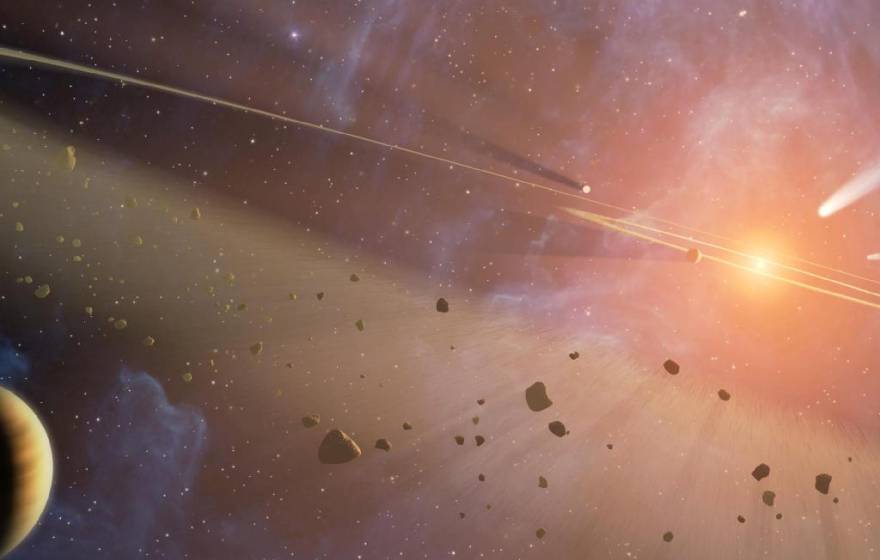UC Riverside physicist uses 3D-printing technology to understand how the cosmos has evolved.
UC Riverside |
The universe in your hand
UC Berkeley |
Mars will lose its largest moon, but gain a ring
Phobos will likely slowly lose orbit and be shredded into pieces that will surround the red planet.
UCLA |
A simpler way to define what makes a planet
Professor's new approach classifies 99 percent of all known exoplanets.
UC Santa Cruz |
How a black hole swallows a star
New observations via X-ray telescopes confirm theory of 'tidal disruptions' that rip stars apart.
UC Santa Barbara |
Deflecting asteroids: fact or fiction?
Solar laser beams will push that deadly space rock out of a collision course with Earth: It sounds far-fetched, but it may be closer to reality than one might think.
University of California |
Jupiter-like planet discovered outside our solar system
International team with multiple UC researchers pinpoints young, giant planet with characteristics shared by those in our solar system.
UC Berkeley |
Investor joins in $100M search for extraterrestrial intelligence
Breakthrough Prize founder Yuri Milner joins 10-year commitment to ramp up SETI.
Lawrence Livermore Lab |
Did icy comets serve as storks for life on Earth
Astrobiologist investigates whether cosmic collisions were the key to earthly life.
UCLA |
UCLA-led NASA mission eyes dwarf planet Ceres
First images from Dawn spacecraft produce up-close, 3-D model of the ‘mysterious’ terrain of the orb between Mars and Jupiter.
UC Santa Cruz |
Astronomers baffled by discovery of rare quasar quartet
Four quasars, each one a rare object in its own right, have been found in close physical proximity to each other.
UC Santa Cruz |
Astronomers set a new distance record for galaxies
Astronomers discover a bright galaxy more than 13 billion light years from Earth — the most distant known, dating back to when the universe was just 5 percent of its current age.
UC Irvine |
Extended space travel may warp astronauts' brains
Worrisome news for potential missions to Mars: Long-term galactic cosmic ray exposure can cause permanent dementia-like cognitive impairments.










